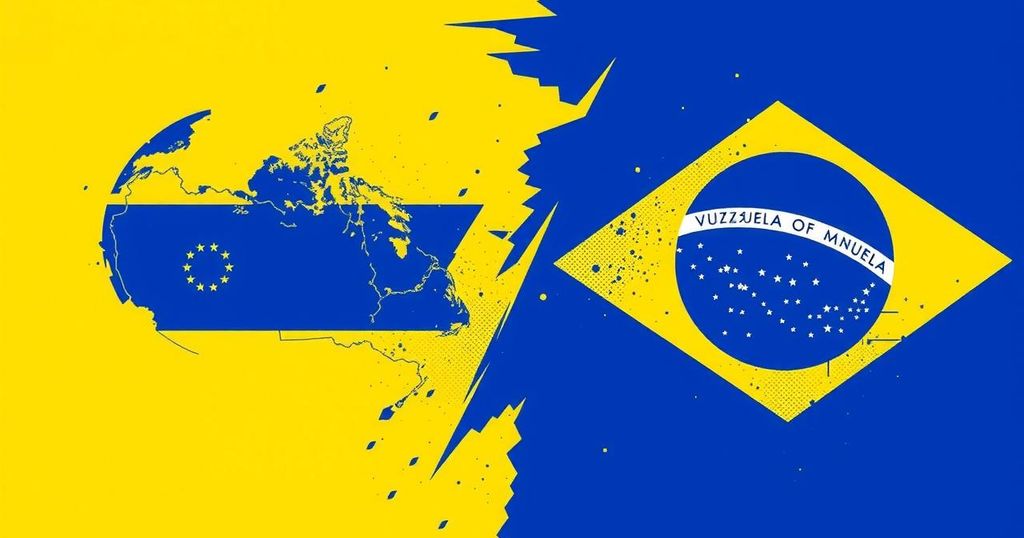Venezuela Recalls Ambassador to Brazil Following BRICS Veto

Venezuela recalled its ambassador to Brazil after the Brazilian government vetoed its application to join BRICS, igniting tensions between Maduro’s and Lula’s administrations amid concerns related to recent disputed elections in Venezuela.
Venezuela’s Foreign Ministry announced on Wednesday, October 30, 2024, that it has recalled its ambassador to Brazil following a recent veto by the Brazilian government regarding Venezuela’s application to join the BRICS consortium of emerging economies. This decision, made by left-wing President Luiz Inácio Lula da Silva’s administration, has sparked outrage from Venezuela’s President Nicolás Maduro, who perceives Brazil as a key ally. The Ministry stated that Maduro instructed Ambassador Manuel Vadell to return for consultations “immediately,” and summoned Brazil’s chargé d’affaires in Caracas to formally protest the veto. While the statement did not specifically criticize President Lula, who missed the BRICS summit in Russia due to a head injury, it condemned the actions of Brazilian diplomats as “irrational” and characterized their veto as a violation of BRICS members’ goodwill. Relations between Venezuela and several Latin American countries have deteriorated amid controversy surrounding the disputed elections held in Venezuela on July 18, where Maduro’s electoral officials declared him victor amidst claims of electoral fraud from opposition parties. The Brazilian government has yet to recognize Maduro’s re-election, demanding a thorough explanation of the election results before extending acknowledgment. Historically, Lula was allied with Maduro’s predecessor, Hugo Chávez, yet he has expressed dissatisfaction with Maduro’s administration, referring to it as a “very unpleasant regime” exhibiting an “authoritarian bias.” The Venezuelan Foreign Ministry specifically criticized former Foreign Minister Celso Amorim, an advisor to Lula, alleging that Brazil’s veto was due to Caracas’ breach of trust concerning electoral transparency, an assertion Amorim supported having observed the elections. Furthermore, the ministry labeled him a “messenger of North American imperialism,” prompting Venezuelan parliament president Jorge Rodriguez to propose a motion to declare Amorim persona non grata.
The recent diplomatic tensions stem from Venezuela’s bid to join BRICS, which includes major emerging markets such as Brazil, Russia, India, China, and South Africa. Despite historical alliances, recent political changes, particularly the disputed elections in Venezuela, have led to strained relations with neighboring countries, including Brazil. Lula’s current administration has adopted a more critical stance on Maduro’s government, contrasting the prior more sympathetic view during Chávez’s presidency. The implications of this diplomatic dispute reflect the broader geopolitical challenges in Latin America, particularly regarding democratic governance and electoral integrity.
This incident underscores the escalating tensions between Venezuela and Brazil, exacerbated by recent electoral controversies in Venezuela. Maduro’s stationing of diplomatic representatives and the fierce rhetoric from Venezuelan officials indicates a significant deterioration of relations, which may impact Venezuela’s international standing and potential integration into groups such as BRICS. Future interactions between the two countries will likely be influenced by ongoing concerns over electoral integrity and regional political alliances.
Original Source: www.thehindu.com







